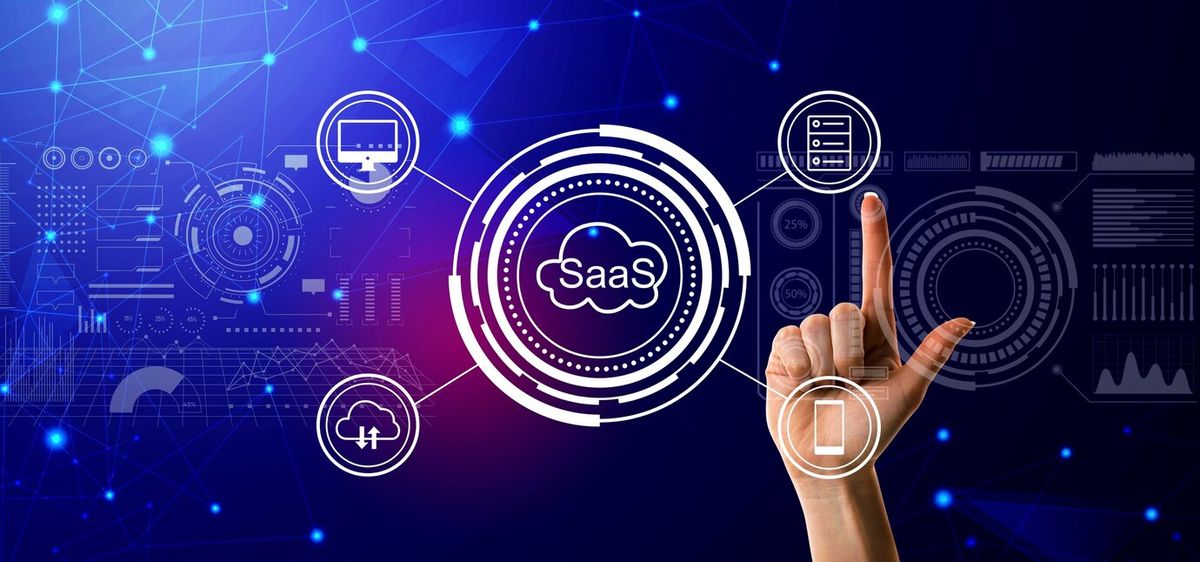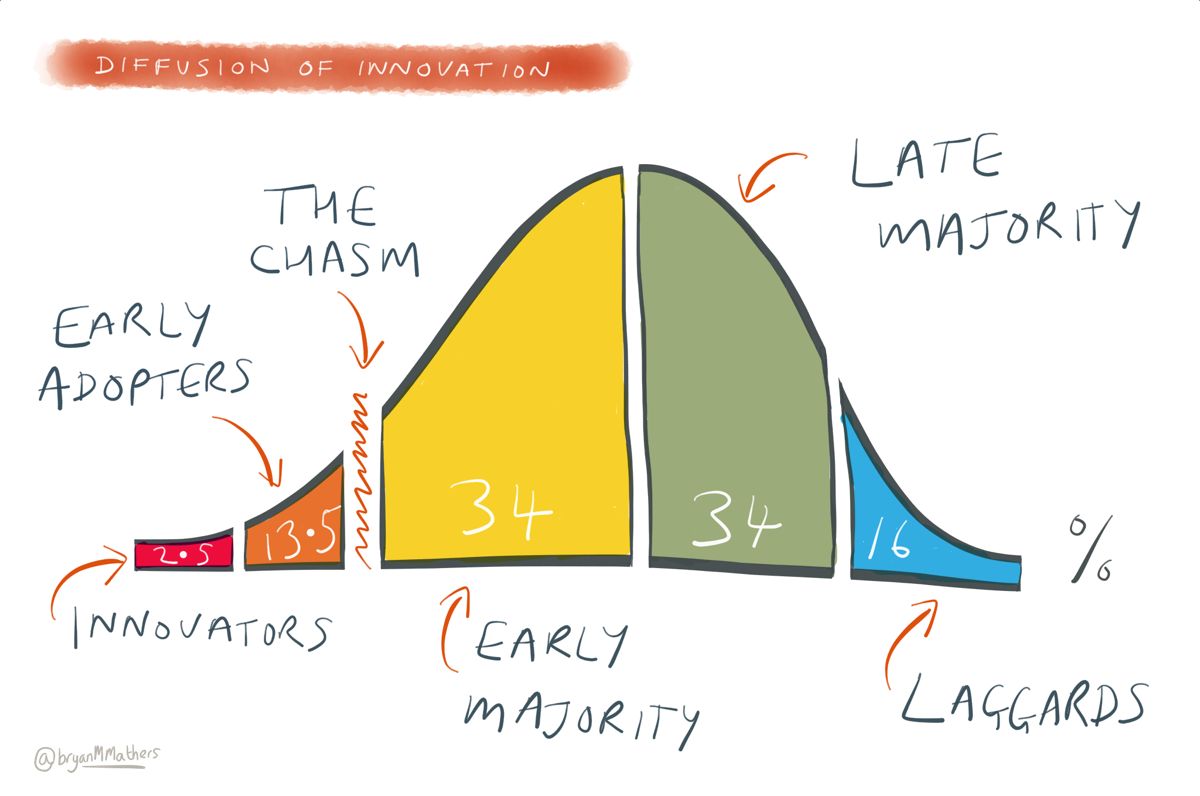

In today's competitive digital economy, Software as a Service (SaaS) stands at the forefront of innovation with subscription-based models transforming the landscape. The integration of Artificial Intelligence (AI) into SaaS offerings has become a catalyst for change, enhancing customer experiences, streamlining sales and marketing strategies, and driving product development. This article delves into the multifaceted role of AI in revolutionizing SaaS, highlighting how businesses can leverage these advancements for growth, differentiation, and success in a subscription-driven market.

Imagine a world where every time you use a software service, it knows just what you need. That's what AI-driven personalization is all about. It's like having a digital buddy who gets you, making sure you see the stuff that matters most to you. This isn't just about knowing your name; it's about creating a unique experience for each person.
With AI, SaaS companies can make sure they're not just another email in your inbox. They can offer you things that you're actually interested in, and help you find what you need before you even ask for it.
Here's how AI is changing the game:
It's all about making sure you feel like the service is made just for you. And when companies get it right, you're not just happier—you stick around longer, too.
In the bustling world of SaaS, AI chatbots are like superheroes for customer service. They're always ready to help, any time of the day or night. Chatbots can handle the simple stuff, like answering FAQs, and they know when to call in a human for the trickier questions. This means customers get quick answers, and support teams aren't swamped with routine queries.
With AI chatbots, businesses are seeing happier customers and more efficient support teams. It's a win-win!
Here's what makes AI chatbots so great for customer service:
And it's not just about answering questions. Chatbots can also collect feedback and help customers through the buying process. It's like having a friendly guide in your pocket, ready to assist at any turn.
Predictive analytics is like a crystal ball for SaaS companies. It looks at what customers did in the past to guess who will stick around. This magic comes from studying old sales, chats, and what users do on the site. It's all about finding patterns that tell us who's likely to keep using the service. By knowing this, companies can keep users happy and stop them from leaving.
Here's how it works in simple steps:
Predictive analytics doesn't just help find users who might leave; it also spots chances to sell more to people who already like the service. It's a win-win for both the company and the customers!

Imagine a sales team that never sleeps, never takes a break, and always knows the perfect thing to say. That's what AI-powered sales reps are bringing to the table. These digital dynamos are transforming the way SaaS companies connect with potential customers. By analyzing data and learning from interactions, they can personalize conversations and make sure every lead gets the attention it deserves.
With AI, sales reps can focus on what they do best—closing deals. This shift means more efficient use of time and resources, leading to better conversion rates and happier customers.
Here's how AI is changing the game:
These advancements mean that SaaS companies can now offer a level of service that was once impossible. And the best part? It's not just about working harder; it's about working smarter.
In the world of SaaS, AI is revolutionizing the way we approach marketing. By analyzing customer data and behavior, AI enables businesses to create highly targeted campaigns that resonate with individual users. This personalized approach not only captures attention but also significantly improves conversion rates.
For instance, AI-powered recommendation engines consider a user's past interactions to suggest products that they're more likely to purchase. This not only boosts sales but also enhances customer satisfaction by providing relevant options. Here's how AI is making a difference:
By leveraging AI, SaaS companies can ensure that their marketing efforts are not just seen but are impactful. This strategic use of technology leads to more efficient use of marketing budgets and a better overall return on investment.
With tools like HubSpot and Salesforce Einstein integrating AI into their platforms, businesses can now enjoy the benefits of predictive analytics and automated task management. This not only streamlines the marketing process but also provides a competitive edge in a crowded market.
In the world of SaaS, getting the price right is like hitting a moving target. But with AI, companies are turning the game around. AI helps businesses set prices that customers are willing to pay, while also keeping an eye on the competition. It's all about finding that sweet spot where value meets affordability.
AI digs through heaps of data to spot trends and patterns. This means companies can adjust prices on the fly, for things like big sales or new features. And it's not just about raising prices. Sometimes, AI finds that lowering them can actually bring in more dough.
Here's how AI changes the pricing game:
By using AI, SaaS businesses can make sure they're not leaving money on the table or scaring customers away with steep prices. It's a win-win for everyone.

In the fast-paced world of SaaS, no-code AI solutions are a game-changer. They allow businesses to harness the power of artificial intelligence without needing expert coding skills. With no-code platforms, you can quickly create AI features that can analyze data, understand customer behavior, and even interact with users.
Here's how no-code AI can transform your business:
No-code AI platforms empower teams to innovate and deploy solutions rapidly, giving them a competitive edge in the market.
For example, Galadon.io offers a no-code AI integration that lets you build an AI-powered sales rep in minutes. You can customize it to match your brand and easily export it to your website. This approach not only saves time but also reduces costs and complexity, making AI accessible to more businesses.
In the bustling world of SaaS, standing out is key. Customizing AI features to match your brand identity is not just a nice-to-have; it's a must-do to ensure your service resonates with your audience. Imagine an AI that speaks your brand's language, wears its colors, and upholds its values. That's the power of tailored AI solutions.
Here's how you can make AI work for your brand:
Identify your brand's unique elements: What makes your brand tick? Is it the playful tone, the minimalist design, or the commitment to sustainability? Pin these down first.
Work with AI that adapts: Choose AI tools that offer customization options. This could mean tweaking the AI's communication style or its visual appearance to align with your brand.
Test and refine: Launch your customized AI, gather feedback, and keep refining. Your AI should evolve as your brand does.
With AI-powered customization, SaaS products can adapt to individual user preferences, delivering tailored experiences that drive engagement and loyalty.
Remember, when your AI aligns with your brand, it's not just a tool; it becomes a part of the customer's experience, a familiar face that they trust and enjoy interacting with.
In the world of SaaS, where competition is fierce, AI-enhanced interfaces are key to providing a standout user experience. These smart interfaces use AI to learn from user interactions, making the software smarter and more intuitive over time. For instance, predictive text and voice commands can speed up tasks, while intelligent assistants offer quick insights and help with decision-making.
AI doesn't just make things look good; it makes them work better for each user. By adapting to individual preferences and behaviors, AI ensures that the software grows with the user, offering a personalized touch that can make all the difference. Here's how AI is changing the game:
With AI, SaaS platforms are not just tools; they become proactive partners in the user's journey, anticipating needs and smoothing out any bumps along the way.
And it's not just about the individual. AI-driven interfaces can also help teams work better together, with features that streamline collaboration and communication. As AI continues to evolve, it's clear that the user experience will only get smarter, more efficient, and more enjoyable.

In the dynamic world of SaaS, staying ahead means staying relevant. Machine learning (ML) is the key to unlocking a personalized experience for every user. By incorporating ML into SaaS applications, these platforms can adapt to user behavior, automate routine tasks, and refine their functionalities. This isn't just a fancy feature; it's a game-changer for user engagement and satisfaction.
With machine learning, SaaS platforms can evolve from static services to dynamic helpers that grow with the user. This means that the more a user interacts with the service, the better it gets at meeting their needs.
Here's how ML is making a difference:
By focusing on these areas, SaaS providers can ensure that their offerings are not just useful, but indispensable to their users.
Imagine a world where your SaaS platform does more than you ask. Intelligent automation is making this a reality. By using AI, SaaS platforms can now predict what users need before they even ask. This means less time spent on routine tasks and more time for the big ideas.
For example, AI can automatically sort through data, spot trends, and even suggest actions. It's like having a super-smart assistant that's always on the ball. And the best part? It gets smarter over time, learning from each interaction to become even more helpful.
With intelligent automation, SaaS platforms are not just tools; they become partners in your business growth.
Here's how AI is changing the game:
And it's not just about making things easier. It's about making them better. AI-driven SaaS platforms can integrate with other systems, ensuring all your tools work together in harmony. This means you can adapt quickly to new challenges and keep your business agile.
When we think about growing a SaaS business, AI is like a secret weapon. It's not just about making things faster or smarter. AI helps us reach new markets and create fresh services that were once too tricky to handle. Imagine having a tool that learns what your customers like and then offers them exactly that. It's like having a super-smart friend who knows just what to say.
AI isn't just a one-size-fits-all thing. You can tweak it to fit your brand like a glove. This means your AI can chat with customers, help them out, and even sell to them in a way that feels just right for your business. And the best part? You don't need to be a tech wizard to make it happen. With no-code AI, anyone can jump in and start playing with AI in minutes.
AI is changing the game for SaaS companies. It's not about replacing people; it's about giving businesses superpowers to do more and be more for their customers.
Here's a quick look at how AI can make a SaaS business shine:
And remember, the sooner you start playing with AI, the sooner you'll see how it can take your SaaS business to new heights.

In the fast-paced world of SaaS, AI is setting new benchmarks for efficiency, leaving traditional models in the dust. By optimizing processes, AI-powered SaaS offerings are not only faster but also more cost-effective. This is a big deal because it means businesses can do more with less, and who doesn't want that?
With AI, SaaS companies are transforming the way they operate. They're able to automate tasks that used to take up precious time and resources. This isn't just about cutting costs; it's about being smarter and more agile.
For example, AI can help with things like:
And the proof is in the pudding. Check out these real-world examples of AI efficiency in action:
By embracing AI, SaaS companies are not just keeping up with the competition; they're setting the pace. And that's something to get excited about!
When it comes to customer support, finding the right mix between AI and human teams can be a game-changer. AI systems can handle a high volume of requests with consistent quality, but they may lack the nuanced understanding that human teams bring to complex issues. To figure out the best balance, companies are benchmarking AI performance against human teams. This isn't about replacing people with robots; it's about enhancing the team's overall strength.
By comparing the strengths of both AI and human support, businesses can create a customer service experience that boosts satisfaction and efficiency.
Here's how some companies are measuring up:
Finding the perfect mix is crucial for businesses that want to stay competitive and keep their customers happy. It's not just about who does the job faster or cheaper; it's about creating a seamless support system that leverages the strengths of both AI and human support.
To stay ahead, SaaS companies must keep innovating. AI is the key to making software that not only meets today's needs but also adapts to tomorrow's challenges. By continuously integrating AI, SaaS offerings can evolve, becoming smarter and more efficient over time.
By focusing on AI innovation, SaaS companies can create a future where their tools are not just useful but indispensable. They can turn challenges into opportunities and keep their edge in a fast-moving world.
As we have explored throughout this article, AI is not just a technological advancement; it's a transformative force reshaping SaaS offerings and subscription-based services. By integrating AI, businesses can create highly personalized experiences, automate customer interactions, and optimize their services in real-time. Tools like Galadon exemplify the potential of AI to outperform traditional sales methods, offering no-code integration, customization, and scalability that can revolutionize the way companies engage with their customers. As AI continues to evolve, it will undoubtedly become an indispensable component of SaaS development, driving innovation and growth in an increasingly competitive digital landscape. For businesses looking to stay ahead, embracing AI is no longer an option—it's a necessity for success in the subscription economy.
AI enhances customer interactions by offering personalized experiences, automating customer service with chatbots, and using predictive analytics to anticipate customer needs, thereby improving engagement and retention.
AI revolutionizes SaaS sales and marketing by automating sales processes, enabling targeted marketing campaigns based on customer data insights, and optimizing pricing strategies to maximize revenue.
Yes, no-code AI solutions like Galadon.io allow for rapid deployment of AI features, enabling businesses to integrate AI into their SaaS offerings without the need for extensive coding expertise.
AI contributes to scalability by adapting to user behavior through machine learning, enhancing platforms with intelligent automation, and providing tools for expansion and diversification of SaaS services.
AI-infused SaaS offers competitive advantages such as higher efficiency, the ability to outperform traditional and human-operated models, and the capacity for continuous innovation to stay ahead in the market.
Galadon outperforms traditional sales reps by providing instant, trained responses, and it offers higher quality and efficiency compared to outsourced reps and other AI chatbots, positioning itself as a refined sales machine.